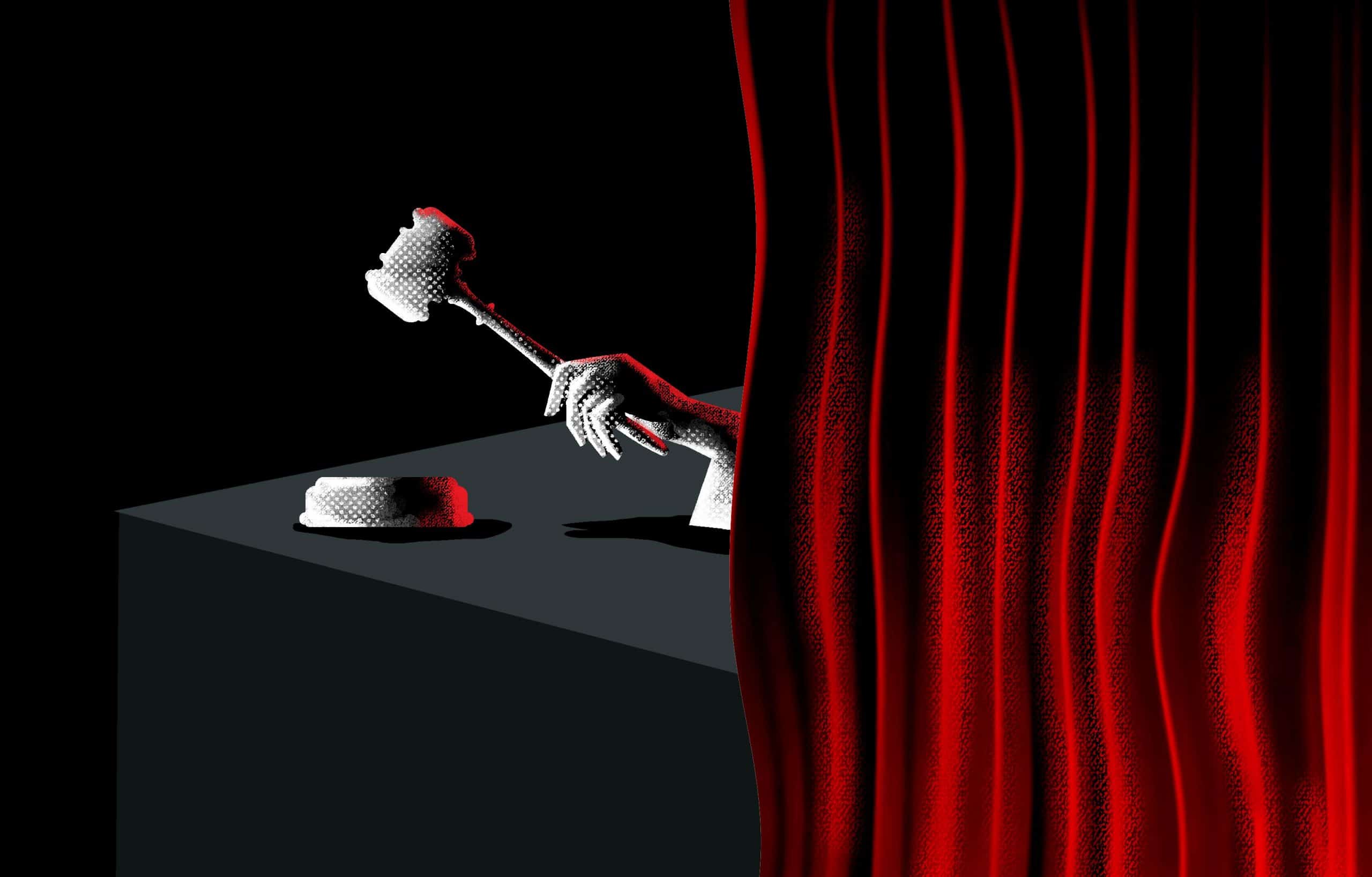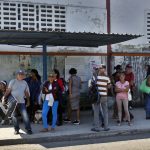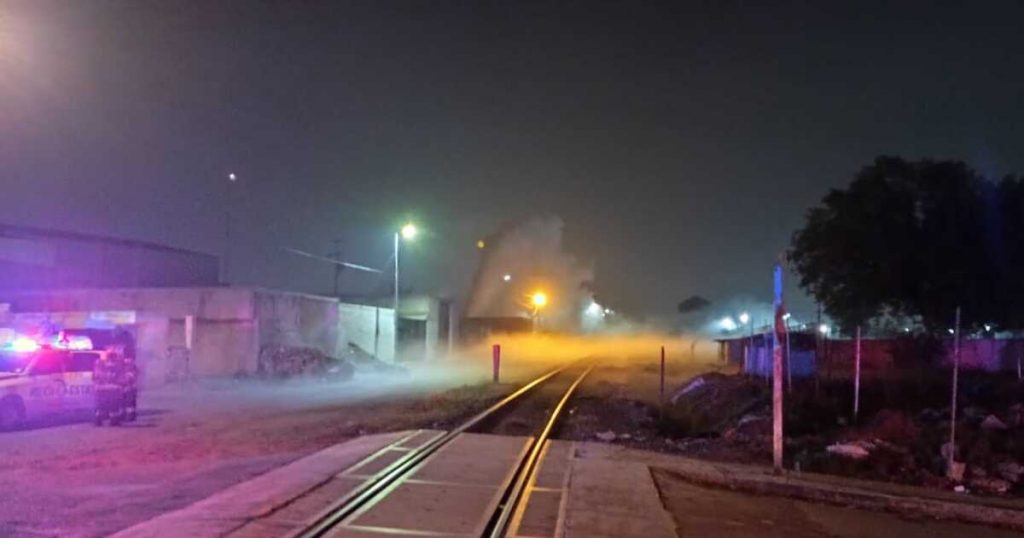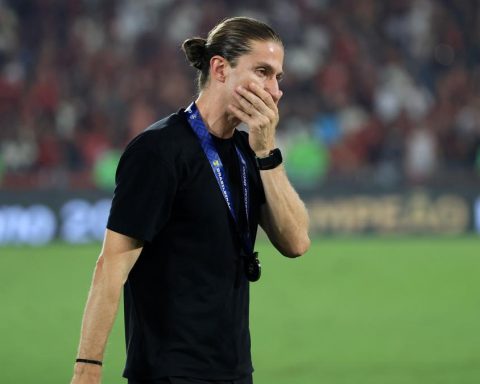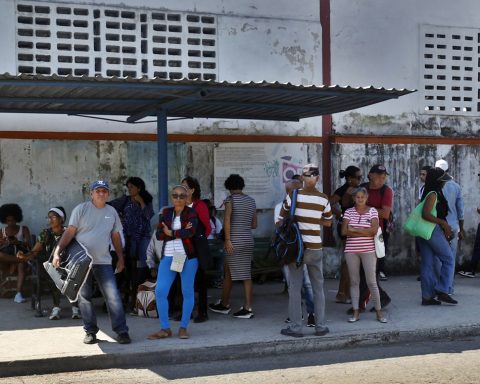The regime’s strategy of freezing the judicial processes of some thirty political prisoners, seeks that these function as “political change chips” for an eventual negotiation that tries to legitimize the “electoral farce” of this November 7, they explained to CONFIDENTIAL topolitical and legal analysts.
Postpone these political trials indefinitely, under the argument of an alleged “excess workload”, violates the constitutional principle of the speed of the judicial process to which all Nicaraguans are entitled, in addition to articles 134 and 135 of the Criminal Procedure Code, and 40 of Law 735 or Prevention, Investigation and Persecution of Organized Crime and Administration of Seized, Confiscated and Abandoned Assets.
Of the 39 political prisoners that the regime has captured in the context of the electoral process, 35 are already prosecuted for the alleged crimes of “conspiracy” and “money laundering.”; Causes that are complex processing, according to article 135 of the Code of Criminal Procedure. This implies that the trials could last up to 12 months, counted from the first hearing which, in most cases, was held in the first week of September, when some of the inmates served 90 days of arrest.
“At this time it is convenient for them (the Government) to extend these trials, to continue holding the political prisoners as hostages for the time necessary so that they can be used as chips, in a possible negotiation, in exchange for achieving legitimacy and recognition of the other big lie: the electoral farce, “says a political analyst who asked not to be identified to avoid reprisals from the dictatorship.
“At the moment when they are no longer interested, because they will give instructions to their lawyers so that they find a way to interpret the law to absorb and release them,” he adds.
Ortega operators and political analysts have mentioned that after perpetuating themselves in power, through the “rigged” voting on November 7, the Ortega members will possibly seek a dialogue, managed by them, to reestablish the conditions of political, social and economic control in Nicaragua, which the regime had before the social outbreak in the April 2018 Rebellion.
“Everything that has been done against the imprisoned (opponents) is illegal and politically motivated. A false legality has been constructed and procedural norms are applied at convenience, flagrantly violating fundamental principles of the criminal process. Everything is a sham, orchestrated by the dictators and executed by the magistrates and judges of a corrupt Judicial Power. The laws are violated and interpreted at the pleasure and whim of the ‘commander-in-chief’ and comrade Rosario, “he says.
Freeze start of the count of days of the trials
A legal analyst, who also asked to protect his identity, explains that the judges not only block the process, but also freeze the advance of the period of time established by the Criminal Procedure Code for the processing of these trials.
“What they are doing is not only giving it the status of complex processing to take them up to twelve months, but they leave it on hold for this same period and run the beginning of the counting of days, to have the person detained for longer without holding a trial. ”, He emphasizes.
“For political prisoners it is raining wet with that. This violates constitutional principles regarding due process in regards to procedural speed, to have a resolution in the shortest possible time, “he adds..
Article 166 of the Political Constitution It stipulates preserving the speed of judicial processes, as well as a due defense for the accused.
Article 134 of the Code of Criminal Procedure establishes that, “in any trial for crimes in which a defendant is imprisoned for the alleged commission of a serious crime, a verdict or sentence must be pronounced within a period of no more than three months from the date of the first hearing. If no inmate is detained, this period will be increased to six months. In the case of less serious crimes, these periods will be one and two months, respectively. In judgments for misdemeanors, a resolution must fall within a maximum period of ten days ”.
This same article also establishes as reasons for interrupting the calculation of the term, the delays attributable to the defense of the accused or due to unforeseeable circumstances or force majeure. “Work overload” is not mentioned to me as a reason.
“If after the time limits set for the criminal process with the accused detained, no verdict or sentence has been passed, the judge will order the immediate release of the accused and the continuation of the process,” Article 134 adds.
“What the judges are doing is filing the cases and then they say that because they have too much workload, they are going to notify the trial date for a car, which is a resolution and that the deadlines are suspended due to force majeure. That means that the deadlines do not run. And the trial is lengthened, without the expiration of the maximum duration of the process “, explains the legal analyst.
“The judge can issue such orders or resolutions in a totally discretionary manner. If the judge says that the trial is tomorrow, then we have to go tomorrow, but if the judge says my agenda is loaded in January, then I do it in February, to give an example, “he says.
Political use of complex processing
The complex processing of a process is established in article 135 of the Code of Criminal Procedure and refers to causes related to terrorist activities, international drug trafficking, banking crimes, money laundering and trafficking of organs or people. In the case of political trials, the regime has bet on the accusations of terrorism, banking crimes and money laundering to imprison many of his opponents.
CONFIDENTIAL reported that the cases against the political prisoners: Juan Sebastián Chamorro, Félix Maradiaga, Arturo Cruz, José Adán Aguerri, Violeta Granera, José Pallais and Tamara Dávila, are settled in the Fifth Criminal District Court of Managua, but the calculation of the maximum term of the trial is interrupted.
Likewise, in the Ninth Criminal District Court of Managua the deadline for holding the trial against political prisoners: Cristiana Chamorro Barrios, Walter Gómez, Marcos Fletes, Pedro Vásquez and Pedro Joaquín Chamorro Barrios is suspended.
“Even the judge can determine a date, but one day before that date, he realizes, for example, that he broke a nail or his schedule is overloaded again and he reschedules it for you and interrupts the deadline again. In such a way that the term does not run. It remains suspended ”, said the analyst.
Article 135 establishes that “the ordinary period of precautionary measures may be extended up to a maximum of twelve months and, once the conviction has been passed, up to a maximum of six months. The resolution that establishes that the matter is of complex processing must be adopted at the latest at the Initial Hearing and will be appealable by the accused. The declaration of complexity of the case may be revoked at any time, ex officio or at the request of a party ”.
The Nicaraguan Center for Human Rights (Cenidh), an organization that has been suspended and persecuted by the regime, ruled on the freezing of these processes through its Twitter account.
?@cenidh COMPLAINTS that all the Courts that are unfairly prosecuting the 39 political prisoners (detained from May to date) have suspended the terms of the trial, that is, they do not schedule a date for oral and public trial, supposedly by “forces majeure” that do not substantiate. pic.twitter.com/Sce2G46HM7
– Cenidh (@cenidh) October 23, 2021
“The Cenidh denounces that all the Courts that are unfairly prosecuting the 39 political prisoners (detained from May to date) have suspended the terms of the trial, that is, they do not set a date for oral and public trial, supposedly by ‘forces majeure’ ‘that do not substantiate. This practice of the Ortega Murillo regime is a perverse measure, what they intend is to have them imprisoned indefinitely, they are practically anticipating what could be a life imprisonment, “denounced the human rights body.
